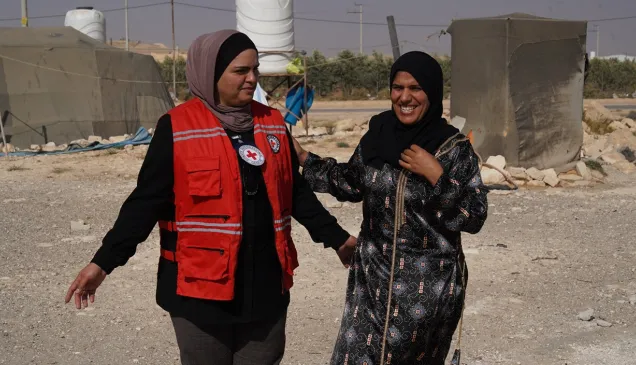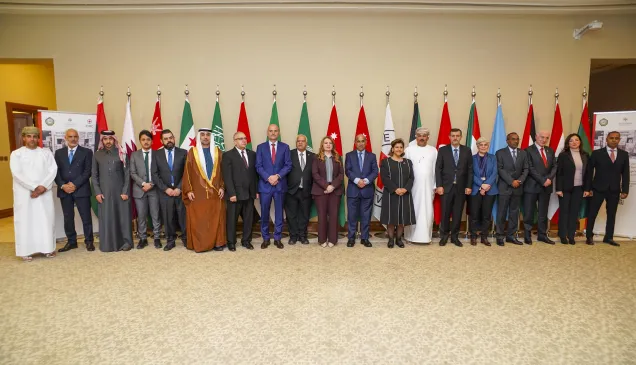Jordan: ICRC continues its humanitarian work amidst COVID-19 environment
Within the context of its on-going efforts to ensure that an outbreak of COVID-19 is prevented in correctional facilities in Jordan, the ICRC provided personal hygiene items for inmates and protective items for health staff in 18 correctional facilities, five juvenile centers and two main police stations across the country.
This followed a technical meeting on Health Care in Detention (HCiD) organized by the ICRC with the authorities to discuss preventing the spread of the virus in correctional facilities nationwide. To further strengthen the response of the authorities, the ICRC conducted a series of working sessions for key officers of the Correctional and Rehabilitation Centres Department (CRCD) in Amman. These sessions, held from 12 to 15 April 2020, were undertaken in partnership with the CRCD and focused on implementing the modalities of a prevention plan in correctional facilities.
The ICRC has also maintained its Cash Transfer Programme (CTP) in support of Syrian refugees, ensuring that the monthly cash disbursement assists them to meet some of their essential needs (such as rental accommodation and other related commitments). The CTP programme of the ICRC was instituted in 2013 for extremely vulnerable Syrian refugee families living in host communities. Currently, there are some 720 refugee families enrolled in the programme, and while they are not confined to one geographical area, many of them live in and around Mafraq.
In view of the need to ensure the continuous supply of potable water to the north of Jordan where a big refugee population resides, the ICRC provided some tools made up of repair clamps (16 pieces) and coupling/collars (20 pieces) to the Yarmouk Water Company in Irbid.
Beyond Jordan, the Logistics Supply Chain (LSC) of the ICRC in Amman continues to support the life-saving work of delegations in the region and beyond. Recently, and amidst the COVID-19 pandemic, it shipped 12.5 MT hygienic parcels and various items to Jerusalem, 6 MT of medical items including insulin to Syria, 3.5 MT of wheelchairs and other items to DRC and 9 MT of various medical consumables to Yemen.
Like many countries of the world, Yemen is also beginning to deal with an outbreak of COVID-19. Given the challenges of navigating the rough terrain in the country in the quest to deliver humanitarian assistance, the ICRC Global Driving Centre in Amman recently conducted an Advanced Driving Course for drivers from the ICRC delegation in Yemen to help improve their knowledge on the latest safety measures and technology existing in vehicles and enhance their driving skills.
The ICRC has been present in Jordan since 1967 and has maintained its humanitarian activities in several parts of the country ever since. It is engaged in providing support for families of missing persons, ensuring respect for the dignity and integrity of people deprived of their liberty, and helping families separated from their loved ones to maintain contact with each other. It supports Syrian refugees and host communities through livelihood projects, rehabilitates water infrastructure and trains engineers and operators to run them. In the health sector, the ICRC provides medical equipment, and strengthens the capacity of health professionals and security forces to respond to emergencies, builds capacity in physical rehabilitation and in healthcare in detention. Jordan hosts one of the ICRC’s largest logistics centers which supports its humanitarian operations in the Middle East and beyond, as well as one of three global staff training hubs and the regional resource network that provides expertise to all delegations in the Middle East and supports the ICRC’s humanitarian diplomacy efforts in the region.



